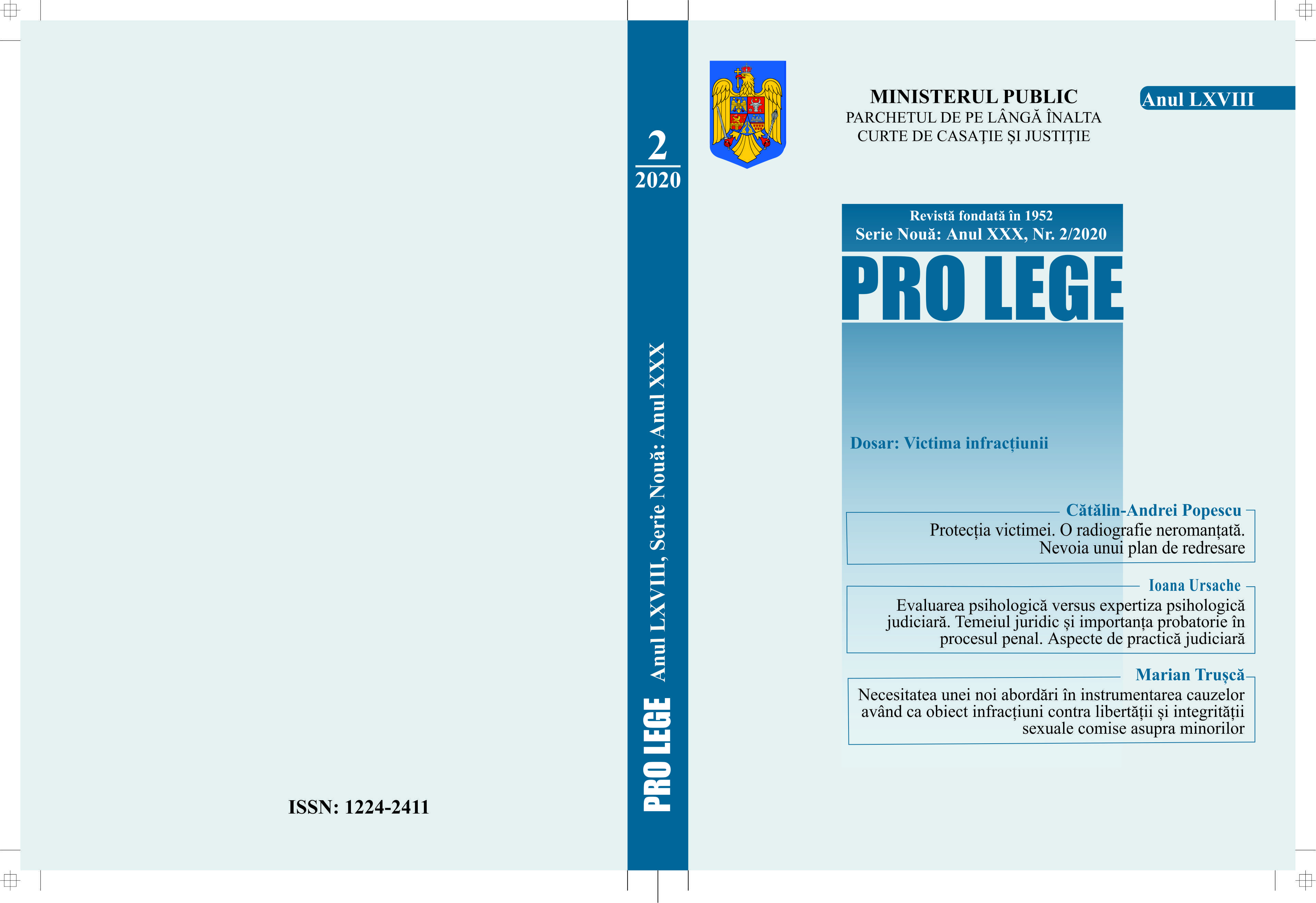Infracțiunea prevăzută de art. 32 din Legea nr. 217/2003 privind prevenirea și combaterea violenței domestice, republicată, cu modificările și completările ulterioare – scurte comentarii și sinteză de practică
judiciară recentă
The offense provided by Art. 32 of the Law no. 217/2003 on the prevention and fighting against the domestic violence, republished, with subsequent amendments and completions – brief comments and summary of the recent case law
Author(s): Teodor ManeaSubject(s): Law, Constitution, Jurisprudence, Civil Law
Published by: Universul Juridic
Keywords: prevention and combating of domestic violence; protection order; non-compliance with court decisions;
Summary/Abstract: According to the legislation in force, the protection and support of the family, the development and strengthening of the family solidarity, based on friendship, affection and moral and material mutual help of the family members, is an objective of national interest. In this context, a number of mechanisms have been created in order to achieve this goal. The main weapon against the domestic violence seems to be the institution of the protection order, an institution provided by Art. 221 et seq., as well as by Art. 23 and the following from the Law no. 217/2003 on the prevention and fighting against the domestic violence, republished, with subsequent amendments and completions. In order to ensure the compliance with the protection order, which is essentially a civil law institution, the legislator took into consideration the need to criminalize the violation of its provisions. Thus, it was regulated a specific offense contained in the Art. 32 of the Law no. 217/2003 of non-compliance with court decisions provided by the Art. 287 of the Criminal Code. In order to commit this offence, it is necessary, as a precondition, to have a protection order, issued in the ordinary or provisional procedure. It must be in force and the non-compliance with the measures, after the expiry date of the order, can no longer be considered a crime. Also, the crime is committed intentionally, under the conditions of the Art. 16 para. (6) of the Criminal Code, which implies that the perpetrator must know that a protection order has been issued against him and that certain obligations and prohibitions have been imposed on him. Another consequence of this fact is that the person against whom the protection order was issued, cannot be prosecuted for failing to comply, for example, with the prohibition of making any contact, including telephone, correspondence or in any other way, with the victim, as long as the latter calls him on his own initiative. As conceived by the legislator, the crime represents an obstacle, intended to ensure compliance with the protection order and, further, to prevent the domestic, physical or mental violence. However, as it results from the judicial practice, including as quoted by this paper, the system rarely works, in most cases the deed being accompanied by a form of aggression, ranging from harassment to murder
Journal: Revista Pro Lege
- Issue Year: 2020
- Issue No: 2
- Page Range: 192-221
- Page Count: 30
- Language: Romanian

